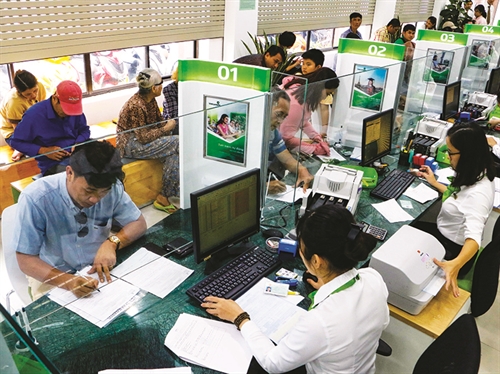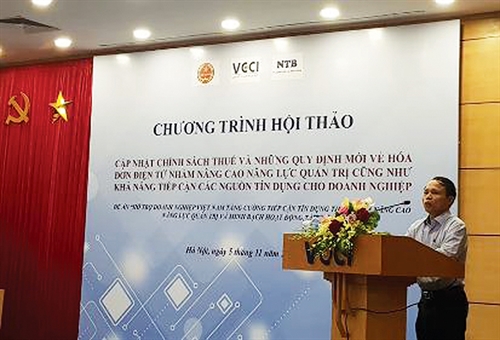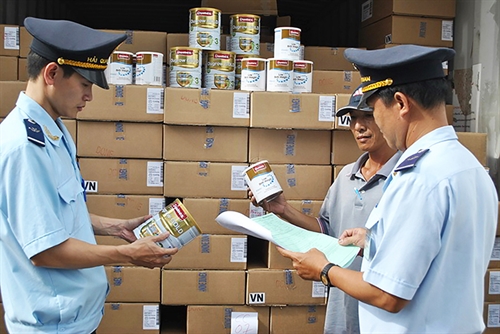Pham Duy Khuong
Managing Director of ASL LAW
After 10 years of implementation of the Law on Tax Administration, many positive results have been achieved. However, in addition to these results, there remain difficulties and challenges in tax administration activities, including management of taxation of businesses providing cross-border services on the Internet.
On November 29, 2006, the National Assembly for the first time enacted the Law on Tax Administration, creating an important legal basis for the management of taxes and other revenues of the state budget. The 2019 revised Law better ensures the strict management of revenue sources, raising the awareness of people and businesses about tax obligations toward the state budget.
Boom of e-commerce platforms
It can be said that Vietnam enjoys advantages of telecommunications and information technology since it has built a qualified network of information technology infrastructure and services. High-quality telecommunications services cover the entire Vietnamese territory.
As a result, over the past five years Vietnam has seen an explosion of both domestic and cross-border e-commerce. This is a totally new way of buying and selling goods and providing services, changing almost all conceptions about buying and selling goods and providing services as users in Vietnam can buy real estate, any goods, and use any services provided by any organizations or individuals all over the world.
The names of e-commerce giants in the world such as Amazon, Alibaba, Ebay or digital content service providers such as Netflix and Spotify are no longer strange to Vietnamese people.
However, the change that brings users convenience creates challenges and pressure for regulatory agencies, particularly tax authorities in collecting taxes from enterprises providing cross-border services. These enterprises earn revenues in Vietnam but do not have to pay or pay any tax to the Vietnamese State. This is obviously not fair for businesses operating and doing business in Vietnam.
 |
| Online shopping has become a hobby of many young people__Photo: Internet |
Actual taxation of businesses providing cross-border services
At present, the legal document governing the tax administration of foreign organizations and individuals doing business or generating income in Vietnam is the Ministry of Finance Circular 103/2014/TT-BTC. However, this Circular applies only to foreign organizations and individuals that have permanent establishments in Vietnam or do not have permanent establishments in Vietnam but generate income based on contracts or cooperation with Vietnam-based organizations and individuals in Vietnam.
For foreign organizations and individuals that have no permanent establishments in Vietnam and generate income directly from Vietnamese users without going through any partners in the country, there is no legal ground and mechanism for tax administration.
Recently, several Vietnamese authorities have spoken out about this situation. In addition to other specialized management activities, the issue of taxation of cross-border service providers has been raised for analysis and evaluation. Many people said that Netflix, Iflix, Amazon and Facebook did not perform the responsibility of declaring and paying taxes like Vietnamese businesses and were not even subject to management and censorship of contents, thus posing risks for the state management.
Significant legal texts governing tax administration of cross-border service providers
In order to address the situation, on June 13, 2019, the National Assembly of Vietnam passed the Revised Law on Tax Administration to replace the existing one. The new law adds the following two important provisions to serve as a legal basis for tax administration for cross-border service providers.
The first is the obligation to declare and pay taxes in Vietnam. Accordingly, for e-commerce business activities, digital-based business and other services performed by suppliers in foreign countries without permanent establishments in Vietnam, overseas suppliers have a direct obligation or authorization to make tax registration, declaration and payment in Vietnam under the Ministry of Finance’s regulations.
The second is obligations of commercial banks to deduct and pay in lieu of payable tax liabilities prescribed by the tax laws of organizations and individuals in foreign countries conducting e-commerce business activities that generate income in Vietnam.
In short, in addition to the obligation to register, declare and pay taxes of organizations and individuals providing cross-border services, the 2019 Law on Tax Administration prescribes additional obligations of commercial banks in deduct and pay in lieu of tax liabilities of these subjects. To provide detailed guidance on the obligations of commercial banks, a government decree has been drafted to guide the implementation of the Law on Tax Administration, requiring commercial banks to deduct and pay tax liabilities on behalf of overseas service providers for products or services that buyers in Vietnam must pay.
Pending more specific guiding texts from the Ministry of Finance, it can be clearly seen that from the effective date of the new Tax Administration Law (July 1, 2020), Vietnam’s competent state agencies have sufficient legal grounds for management and enforcement regarding this group of taxpayers in case they fail to comply with regulations on tax registration, declaration and payment. This will also facilitate a fairer competition for domestic businesses.-









